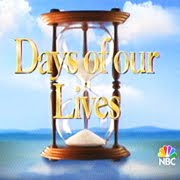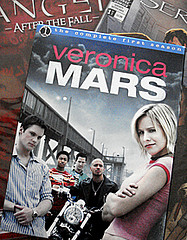When Rob Thomas and Kristen Bell succeeded in raising an astonishing $5.7 million from more than 90,000 donors to produce a movie centered on the one-time teen private detective Veronica Mars, most people called it one of the greatest Kickstarter successes of all time. But much more than a crowd-funding platform success, the Veronica Mars movie marks a much bigger milestone.
As Kickstarter CEO Yancey Strickler called it, the Veronica Mars movie is one of the greatest fan stories of all time. He's mostly right. Kickstarter provided the platform, but it was the dedicated fan base of the cancelled television series that convinced Thomas and the cast to consider a revival.
Fans stuck with Veronica Mars for six years.
The fans didn't just promote the cancelled television series online. They promoted it offline too. And even after rumors that Thomas was making a movie in 2009 fell apart, few of them gave up hope. They continued to promote the series with contests, events, book clubs, and social networks.
"We were told that we made a difference in the decision to even launch the Kickstarter campaign," says Mark Thompson for Neptune Rising. "But once the the Kickstarter launched, we were just a pebble in the storm that represents the true fandom of Veronica Mars."
According to Thompson, he heard about the Kickstarter campaign in its seventh hour and Thomas had already raised his first $1 million for the film. Within 24 hours, the campaign raised $2 million.
At the same time, the entire campaign proved what the Neptune Rising team had said all along. The fan base behind Veronica Mars was much bigger than any social media metrics might demonstrate.
Even on the last day of the Kickstarter campaign, Thomas asked fans to meet him at an Austin bar. He anticipated 30-40 people. More than 700 fans showed up, including Jason Dohring.
"I always had high hopes," said Thomas at the campaign party. "And yet there was this little bit of doubt in my mind ... what if the people telling us to make a movie are the same 20 people?"
His one little worry is now long put to rest. Not only are there thousands of fans behind Veronica Mars, but they also represent the first wave of a shifting paradigm for television and film production that started in 2007. The size of an audience isn't the only consideration. Its passion is just as important.
Even after fans invested $5.7 million into what became a $6 million film, they also turned out to see it in theaters. The movie went on to earn another $2 million during its opening weekend. After earning its top ten release spot, it slowly tapered off and settled somewhere around $3.3 million.
Although it would likely take about $12 million for Warner Brothers to really consider a second movie, the fans who helped make the first one possible are doing everything to ensure their neo-noir detective won't slip away again. They're promoting DVD sales as well as a Veronica Mars novel.
You can stay up to date on the progress of the film via By The Numbers. While many fans already own a copy of the Veronica Mars DVD, it's not uncommon for fan bases to spike sales by purchasing an additional DVD and gifting it to a friend. They've also spiked reviews, giving the movie higher ratings on iTunes and Amazon than most mid-level releases (although critics genuinely liked it too).
If you haven't seen the film, suffice to say that diehard fans will love it as Veronica Mars resurrected. It takes place immediately after she finishes law school with Thomas and the cast planting plenty of insider tidbits and cameos to thank the fans for their long, hard fight. Unfortunately, everyone was so caught up in this as a labor of love, it wasn't as good as it could have been for a true introduction.
And this is the reason it didn't do even better at the box office. It felt too much like a reunion.
Fans are ready to stick with Veronica Mars for another six.
Even so, does it matter? Warner Brothers could easily take the information it gleaned from this release and adjust for the next budget accordingly. Thomas could also pen a script that stays away from the reunion obligations and fights to make Mars into the neo-noir thriller she can be.
 The fans, it seems, are already working to support such an effort. Not only are fans from sites like Neptune Rising promoting DVD sales, but they are also coordinating book readings for the first official Veronica Mars book, Veronica Mars: An Original Mystery by Rob Thomas: The Thousand-Dollar Tan Line (Vintage) with Jennifer Graham.
The fans, it seems, are already working to support such an effort. Not only are fans from sites like Neptune Rising promoting DVD sales, but they are also coordinating book readings for the first official Veronica Mars book, Veronica Mars: An Original Mystery by Rob Thomas: The Thousand-Dollar Tan Line (Vintage) with Jennifer Graham.
"As far as what's next, we'll have to see," Thompson told me. "But the fans of Neptune Rising plan on seeing even more of our favorite sleuth on either the big screen or the small screen."
There isn't any reason to doubt them. Years ago, when an entire season of cancellations happened to decent shows (The Black Donnellys, Jericho, Journeyman, and Veronica Mars), Veronica Mars landed in the uncomfortable position of being on the near-abandoned bubble. It looked like fan efforts were going to fail. Seven year later, there are more diehard fans today than there were then.
It's something to think about. In one form or another, Veronica Mars seems a long way off from solving her last case. And likewise, the movie proves that how networks and studios size up potential franchises is still evolving into smaller but increasingly loyal pools of viewers. Stay tuned.
As Kickstarter CEO Yancey Strickler called it, the Veronica Mars movie is one of the greatest fan stories of all time. He's mostly right. Kickstarter provided the platform, but it was the dedicated fan base of the cancelled television series that convinced Thomas and the cast to consider a revival.
Fans stuck with Veronica Mars for six years.
The fans didn't just promote the cancelled television series online. They promoted it offline too. And even after rumors that Thomas was making a movie in 2009 fell apart, few of them gave up hope. They continued to promote the series with contests, events, book clubs, and social networks.
"We were told that we made a difference in the decision to even launch the Kickstarter campaign," says Mark Thompson for Neptune Rising. "But once the the Kickstarter launched, we were just a pebble in the storm that represents the true fandom of Veronica Mars."
According to Thompson, he heard about the Kickstarter campaign in its seventh hour and Thomas had already raised his first $1 million for the film. Within 24 hours, the campaign raised $2 million.
At the same time, the entire campaign proved what the Neptune Rising team had said all along. The fan base behind Veronica Mars was much bigger than any social media metrics might demonstrate.
Even on the last day of the Kickstarter campaign, Thomas asked fans to meet him at an Austin bar. He anticipated 30-40 people. More than 700 fans showed up, including Jason Dohring.
"I always had high hopes," said Thomas at the campaign party. "And yet there was this little bit of doubt in my mind ... what if the people telling us to make a movie are the same 20 people?"
His one little worry is now long put to rest. Not only are there thousands of fans behind Veronica Mars, but they also represent the first wave of a shifting paradigm for television and film production that started in 2007. The size of an audience isn't the only consideration. Its passion is just as important.
Even after fans invested $5.7 million into what became a $6 million film, they also turned out to see it in theaters. The movie went on to earn another $2 million during its opening weekend. After earning its top ten release spot, it slowly tapered off and settled somewhere around $3.3 million.
Although it would likely take about $12 million for Warner Brothers to really consider a second movie, the fans who helped make the first one possible are doing everything to ensure their neo-noir detective won't slip away again. They're promoting DVD sales as well as a Veronica Mars novel.
You can stay up to date on the progress of the film via By The Numbers. While many fans already own a copy of the Veronica Mars DVD, it's not uncommon for fan bases to spike sales by purchasing an additional DVD and gifting it to a friend. They've also spiked reviews, giving the movie higher ratings on iTunes and Amazon than most mid-level releases (although critics genuinely liked it too).
If you haven't seen the film, suffice to say that diehard fans will love it as Veronica Mars resurrected. It takes place immediately after she finishes law school with Thomas and the cast planting plenty of insider tidbits and cameos to thank the fans for their long, hard fight. Unfortunately, everyone was so caught up in this as a labor of love, it wasn't as good as it could have been for a true introduction.
And this is the reason it didn't do even better at the box office. It felt too much like a reunion.
Fans are ready to stick with Veronica Mars for another six.
Even so, does it matter? Warner Brothers could easily take the information it gleaned from this release and adjust for the next budget accordingly. Thomas could also pen a script that stays away from the reunion obligations and fights to make Mars into the neo-noir thriller she can be.
 The fans, it seems, are already working to support such an effort. Not only are fans from sites like Neptune Rising promoting DVD sales, but they are also coordinating book readings for the first official Veronica Mars book, Veronica Mars: An Original Mystery by Rob Thomas: The Thousand-Dollar Tan Line (Vintage) with Jennifer Graham.
The fans, it seems, are already working to support such an effort. Not only are fans from sites like Neptune Rising promoting DVD sales, but they are also coordinating book readings for the first official Veronica Mars book, Veronica Mars: An Original Mystery by Rob Thomas: The Thousand-Dollar Tan Line (Vintage) with Jennifer Graham."As far as what's next, we'll have to see," Thompson told me. "But the fans of Neptune Rising plan on seeing even more of our favorite sleuth on either the big screen or the small screen."
There isn't any reason to doubt them. Years ago, when an entire season of cancellations happened to decent shows (The Black Donnellys, Jericho, Journeyman, and Veronica Mars), Veronica Mars landed in the uncomfortable position of being on the near-abandoned bubble. It looked like fan efforts were going to fail. Seven year later, there are more diehard fans today than there were then.
It's something to think about. In one form or another, Veronica Mars seems a long way off from solving her last case. And likewise, the movie proves that how networks and studios size up potential franchises is still evolving into smaller but increasingly loyal pools of viewers. Stay tuned.








































